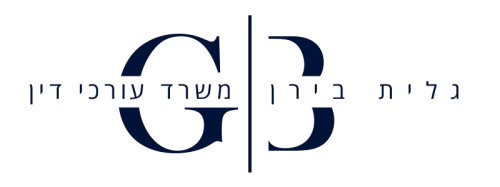Best Water Law Lawyers in Ramat Gan
Share your needs with us, get contacted by law firms.
Free. Takes 2 min.
List of the best lawyers in Ramat Gan, Israel
About Water Law in Ramat Gan, Israel
Water Law in Ramat Gan, Israel deals with the regulation, allocation, and use of water resources in the area. Israel classifies water, including underground water, rivers, and precipitation, as public property, managed on behalf of the state and its residents. In Ramat Gan, much of the legal framework is based on national law but is implemented through local regulations, municipal procedures, and cooperation with national authorities. Water Law typically addresses issues such as water rights, distribution, usage restrictions, water quality, and dispute resolution.
Why You May Need a Lawyer
Several situations can arise where consulting a Water Law lawyer in Ramat Gan is important. Common scenarios include:
- Disputes over water access or allocation between neighbors or businesses
- Conflicts related to water pollution or contamination affecting property or health
- Legal requirements for drilling wells or extracting groundwater
- Issues arising from construction projects impacting water flow or quality
- Challenging local or national water restrictions and fines
- Problems with water bills, connection, metering, or service interruptions
- Concerns regarding municipal water governance or compliance with government policies
- Representation in legal proceedings against or initiated by water authorities or municipalities
Local Laws Overview
Ramat Gan abides by the Israeli Water Law of 1959, which governs the allocation and use of water resources. Key points relevant to Ramat Gan include:
- All water is considered public property and is regulated by the Water Authority
- Water usage for domestic, agricultural, and commercial purposes is subject to permits and allocation
- Local municipalities, including Ramat Gan, manage water provision, maintenance, and infrastructure following national guidelines
- Strict standards are set for water quality and pollution prevention, supervised by the Ministry of Health and Ministry of Environmental Protection
- Water tariffs and billing procedures are regulated with periodic supervision and oversight
- Illegal drilling, unauthorized extraction, or contamination of water sources can result in fines and enforcement actions
- The public has rights to clean and accessible water, but also responsibilities to avoid wastage and comply with regulations
- Special protections and procedures apply when construction or real estate developments impact water infrastructure or quality
Frequently Asked Questions
Who owns water resources in Ramat Gan?
All water resources in Israel, including those in Ramat Gan, are public property. The government and Water Authority manage these resources on behalf of all citizens.
Can I drill a well or access groundwater on my property?
Drilling wells or accessing groundwater requires prior approval and a permit from the Water Authority. Unauthorized drilling is strictly prohibited and subject to penalties.
What should I do if my neighbor’s water use affects my property?
If a neighbor’s water use causes flooding, contamination, or supply issues, you should first try to resolve the matter directly. If unsuccessful, legal recourse or mediation may be necessary, and a lawyer can help present your case to authorities.
How are water rates and tariffs set in Ramat Gan?
Water tariffs in Ramat Gan are regulated by national standards and periodically reviewed. The municipal water corporation is responsible for billing and collections, following government guidelines.
Who ensures the safety and quality of tap water?
The Ministry of Health and the local municipality oversee the quality and safety of tap water, conducting regular tests and implementing safety protocols.
What can I do if I receive an excessive water bill?
First, check for leaks or errors in the meter reading. If the bill seems incorrect, you can appeal to the municipal water provider. If the issue is unresolved, a lawyer can assist in challenging the bill through legal means.
Are there restrictions on water use during droughts?
Yes, the government may impose temporary restrictions on activities such as lawn watering or car washing during droughts. These are enforced locally and typically communicated through public announcements and bills.
How are water pollution issues handled legally?
Sources of pollution must be reported to authorities. If you are affected by water contamination, legal action can be taken against responsible parties, with support from environmental protection laws.
Can I sue if my property is damaged due to municipal water works?
Yes, if municipal water works cause damage to private property, affected parties can seek compensation through legal action. A Water Law lawyer can advise on the best approach and represent your interests.
What rights do tenants have regarding water supply problems?
Tenants have a right to safe and continuous water supply. If a landlord or building management fails to provide this, tenants can file complaints and seek legal remedies to restore service and possibly claim compensation.
Additional Resources
If you need information or assistance, consider these helpful bodies and organizations:
- Israel Water Authority - National body regulating all water issues
- Ministry of Environmental Protection - Resource for complaints about water pollution
- Ministry of Health - Water and Sanitation Department - Oversees water quality standards and testing
- Municipality of Ramat Gan - Water Department - Handles billing, service, and local water management issues
- Local consumer protection organizations - Assist with water billing and service disputes
- Licensed Water Law attorneys - Professional legal advice and representation
Next Steps
If you need legal advice or assistance regarding Water Law in Ramat Gan:
- Collect any relevant documents, such as water bills, permits, photos, or written communications
- Clarify the issue, your goals, and any steps already taken
- Contact a qualified Water Law attorney familiar with local and national regulations
- Consult municipal or relevant government offices for guidance on immediate procedural matters
- If necessary, initiate a formal complaint or legal action with professional support
Lawzana helps you find the best lawyers and law firms in Ramat Gan through a curated and pre-screened list of qualified legal professionals. Our platform offers rankings and detailed profiles of attorneys and law firms, allowing you to compare based on practice areas, including Water Law, experience, and client feedback.
Each profile includes a description of the firm's areas of practice, client reviews, team members and partners, year of establishment, spoken languages, office locations, contact information, social media presence, and any published articles or resources. Most firms on our platform speak English and are experienced in both local and international legal matters.
Get a quote from top-rated law firms in Ramat Gan, Israel — quickly, securely, and without unnecessary hassle.
Disclaimer:
The information provided on this page is for general informational purposes only and does not constitute legal advice. While we strive to ensure the accuracy and relevance of the content, legal information may change over time, and interpretations of the law can vary. You should always consult with a qualified legal professional for advice specific to your situation.
We disclaim all liability for actions taken or not taken based on the content of this page. If you believe any information is incorrect or outdated, please contact us, and we will review and update it where appropriate.









